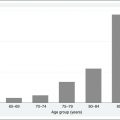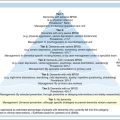Chapter 9 CONSUMERS AND CARERS
INTRODUCTION
Older people experience a broad range of mental health problems and contact with specialist mental health services is increasing. This contact brings a desire on the part of consumers and carers to have greater participation in the management of these services so their unique needs are better addressed. The population served by older persons’ mental health services (OPMHS) is different from other mental health services. One of these points of difference is the greater presence of other people involved with the care of the older person, be that a spouse, a child or a neighbour. Many people derive a lot of satisfaction from being a carer and they are a very valuable resource, but recognition needs to be given to this role, and also the issue of carer burden and ways to reduce burden.
CONSUMER AND CARER PARTICIPATION IN MENTAL HEALTH SERVICES
Since the early 1990s, beginning with the National Inquiry into Human Rights of People with Mental Illness (Human Rights and Equal Opportunity Commission 1993), there has been a considerable shift in philosophical thinking about consumer and carer participation in mental health services. No longer is their presence a neglected, unsupported and almost invisible group of family members struggling to deal with the impact of mental illness on their lives (Mental Health Council of Australia and Carers Association of Australia 2000). Consumer and carer groups have developed into highly structured, funded organisations to achieve their purpose of support and advocacy for consumers and carers.
All the current government policy documents have a consistent and strong reference to the importance of consumer and carer involvement in the management of mental health services to the extent that it is listed as a quality indicator (Australian Health Ministers 2003, Australian Health Ministers Advisory Council 1996). The input of consumers and carers extends from direct involvement in the mentally ill person’s treatment and care plan through to the broader areas of service planning, delivery and evaluation. Beyond being a major stakeholder, another reason why consumer and carer input is important is because their perceptions of what is important in a mental health service can differ significantly from that of the service providers. Lelliott et al (2001), for example, found that consumers placed greater value on social and staff relationships as well as purposeful daytime activities, rather than having all attention focused on controlling their symptoms.
Integration of consumer and carer input for mental health service delivery needs to be facilitated. This is essential so that tokenism is avoided and the benefits realised. Facilitation involves delineating the participation role and educating staff and other carers and consumers about the role and how it articulates with the service. The consumers and carers themselves need to have training and support on how to participate effectively as well. Lloyd and King (2003) have provided ideas for a broad approach to maintain the momentum for consumer and carer participation. The ideas include multidisciplinary and service discussions about strategies to continually improve partnership, creating links between government and non-government sectors, distributing promotional material, incorporating consumer and carer participation into service plans and policy and procedure documents, conducting joint research and evaluation, encouraging working party and committee membership, conducting multidisciplinary and service forums, and involvement in staff education and training. The paid employment of carer and consumer consultants in mental health services has been a successful strategy. These consultants draw on their experience and that of other consumers and carers. They can have an array of roles in areas such as advocacy, education, management and research.
SUPPORT
Mental Health Council of Australia
The Mental Health Council of Australia (MHCA) is a registered charity that was established in 1997 (see www.mhca.org.au). It is a non-government organisation (NGO) that represents and promotes the interests of the Australian mental health sector to achieve better mental health outcomes for all Australians. Membership consists of national organisations representing consumers, carers, special needs groups, clinical service providers, public and private mental health service providers, researchers and state/territory community mental health peak bodies. Its activities are centred around health promotion, education and research, and contributing to the reform agenda for Australia’s mental health system.
Carers Australia
Carers Australia is the national NGO made up of a network of carers’ associations in each state and territory (see www.carersaustralia.com.au). Its purpose is to improve the lives of carers through the provision of services such as counselling, advice, advocacy, education and training. Carers Australia also represents and promotes the recognition of carers to governments, businesses and the wider public.
Mental Health Carers Arafmi Australia
Mental Health Carers Arafmi Australia (ARAFMI) is an NGO that provides support for families, carers and friends of people with mental health issues (see www.arafmiaustralia.asn.au). The first ARAFMI group was formed in Sydney in 1975 by a group of carers who identified the need for a service that would specifically address the concerns of carers, relatives and friends. The movement quickly spread to other Australian states and to the Northern Territory, and it became the primary provider of services for carers of people with a mental illness in Australia. Its support services provide counselling, mutual support groups, telephone support, and information and referral services.
Mental Illness Fellowship of Australia
The Mental Illness Fellowship of Australia (MIFA) began in 1986 as the Schizophrenia Fellowship and in 2001 became what it is known as today (see http://esvc000144.wic027u.server-web.com). The MIFA is an NGO and describes itself as a not-for-profit, grassroots, self-help, support and advocacy organisation of people with serious mental illnesses, their families and friends.
Alzheimer’s Australia
Alzheimer’s Australia is the peak NGO representing people living with dementia, their families and carers (see www.alzheimers.org.au). Alzheimer’s Australia provides leadership in policy and service development. Each state and territory has an office that is responsible for providing information, support, advocacy and education services.
Consumer Advisory Groups
Consumer Advisory Groups (CAGS) for mental health are found in many health services in most Australian states. These groups are non-government bodies, but are funded by government and their purpose is to represent the views of consumers to government for the development of legislation and policy. These views are formulated by information that is gathered from committees, consumer groups and forums, and by undertaking research about consumer experiences with the mental health system.
Stay updated, free articles. Join our Telegram channel

Full access? Get Clinical Tree





